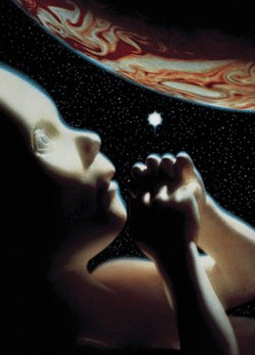 Taking a break from my countdown, Simon Critchley is back in the New York Times with his fascinating analysis of Mormonism and the varied doctrines concerning reincarnation and the eventual divinity of, well, at least men. Interestingly, reading The Book of Mormon doesn’t illuminate these topics–they exist largely as exegesis through specific lectures by Joseph Smith. As Critchley notes about Smith’s lecture, the character and nature of God is finite, is a member of the Host of Heaven (or a council per the lecture), and creation in Genesis is not creation per se, but is instead some kind of reorganization of an infinite and timeless universe.
Taking a break from my countdown, Simon Critchley is back in the New York Times with his fascinating analysis of Mormonism and the varied doctrines concerning reincarnation and the eventual divinity of, well, at least men. Interestingly, reading The Book of Mormon doesn’t illuminate these topics–they exist largely as exegesis through specific lectures by Joseph Smith. As Critchley notes about Smith’s lecture, the character and nature of God is finite, is a member of the Host of Heaven (or a council per the lecture), and creation in Genesis is not creation per se, but is instead some kind of reorganization of an infinite and timeless universe.
Fascinatingly strange, and compounded in its strangeness by the assertion that:
The mind or the intelligence which man possesses is co-equal [co-eternal] with God himself.
It is an evolutionary assertion that suggests our ultimate being is a divine form, and that we have the capacity to achieve this divinity through action, through works, and through effort at being good. As Critchley concludes:
…I see Joseph Smith’s apostasy as strong poetry, a gloriously presumptive and delusional creation from the same climate as Whitman, if not enjoying quite the same air quality. Perhaps Mormonism is not so far from romanticism after all. To claim that it is simply Christian is to fail to grasp its theological, poetic and political audacity. It is much more than mere Christianity.
While I doubt that this analysis will help assuage the concerns of conservative Christians about Mitt Romney’s faith, it undoubtedly serves as a touchstone for that uniquely American principle of religious freedom, and the underlying assumption (on Constitution Day), that the choice of a leader should not be tied to their choice of romantic delusions.